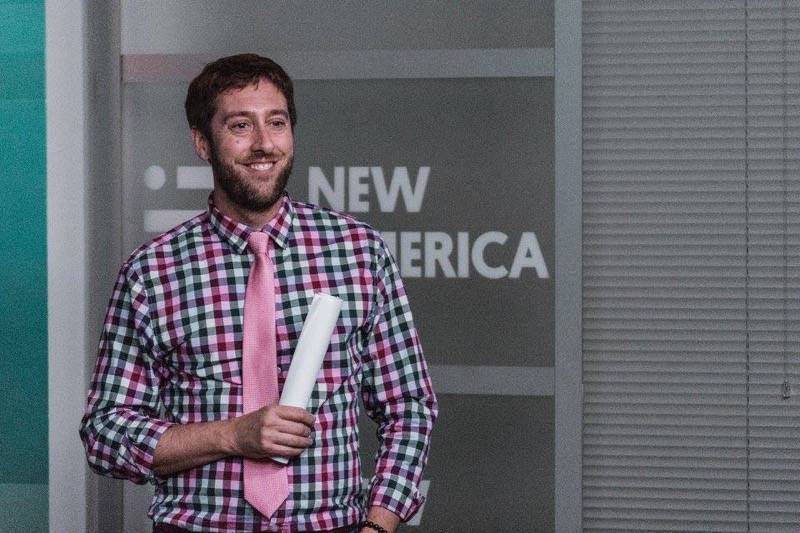After a few iterations, we’ve come to the newest version of Smile Politely, which is much different than the original 2007 version — the internet was a different place then.
When Seth Fein and Mason Kessinger were kicking around the idea of Smile Politely, it was just that — an idea, without many limits. Over time, some boundaries grew, and a scope was borne out of the collaboration between these two and the one I’m about to talk about: Chris Maier. When I decided that I wanted to dive in a bit and talk to a few of the founders, Maier and Kessinger were a couple of stops along the way.
In the coming weeks, we’ll run an interview with Mason Kessinger, the designer of the site, and he said this of the process of bringing Maier into the fold:
“Once Chris came along, it felt like the editorial background of Smile Politely came together. When you have a few powerful voices, me not being one of them, who are all very adamant about who they are and what they were doing, it started to take shape and develop.”
My interactions with Maier over the years have always been pretty limited. A couple of times in person, and a few times on email here and there, keeping track of random things. Nothing super in-depth, but I’ve always followed along with what he’s been doing since he left Champaign-Urbana years ago.
Maier came to Champaign-Urbana in 2002 to attend the MFA program at the University of Illinois, eventually helping create Ninth Letter, before leaving shortly after Smile Politely got off the ground. After learning a bit about Maier, I was fascinated and impressed by the series he does in Washington, D.C., Little Salon. Each salon has a mixture of creative artists that come together and share what talents they have amongst them in a fun and “non-prenentious” way.
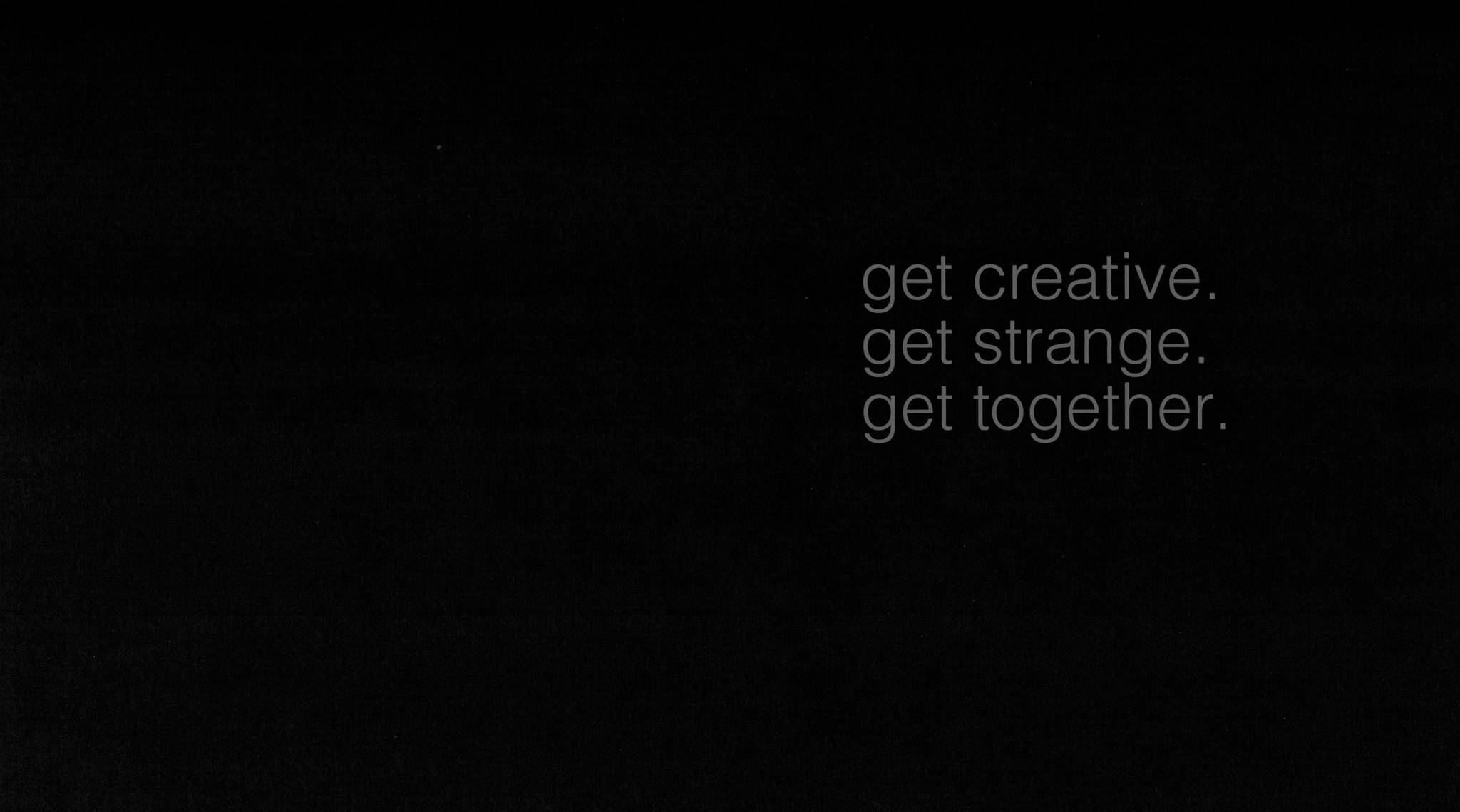
A Little Salon motto.
This isn’t just some amateur operation — Little Salon launched its 36th installment on January 30th. Not to mention other Made by Little creations, that, and Little Academy.
In a way, what Maier is doing with Little Salon in D.C. is a continuation of what he helped start here at Smile Politely: an opportunity for creative community members to construct something together and showcase what their community means to them, and how they chose to express that.
“I was really interested in how we could contribute a little more to the creative culture of Champaign-Urbana in general,” Maier told me, as he was discussing how he began with Ninth Letter, the MFA program, and SP. “There was a fertile ground [in Champaign-Urbana] that could help create our new thing. In doing that, I started Ninth Letter that’s out of the Creative Writing program. There wasn’t really a magazine that I was into, and I was interested in creating something — there are a bunch of disciplines around the campus that didn’t really interact with each other, so we wanted to create something that helped mix them together.”
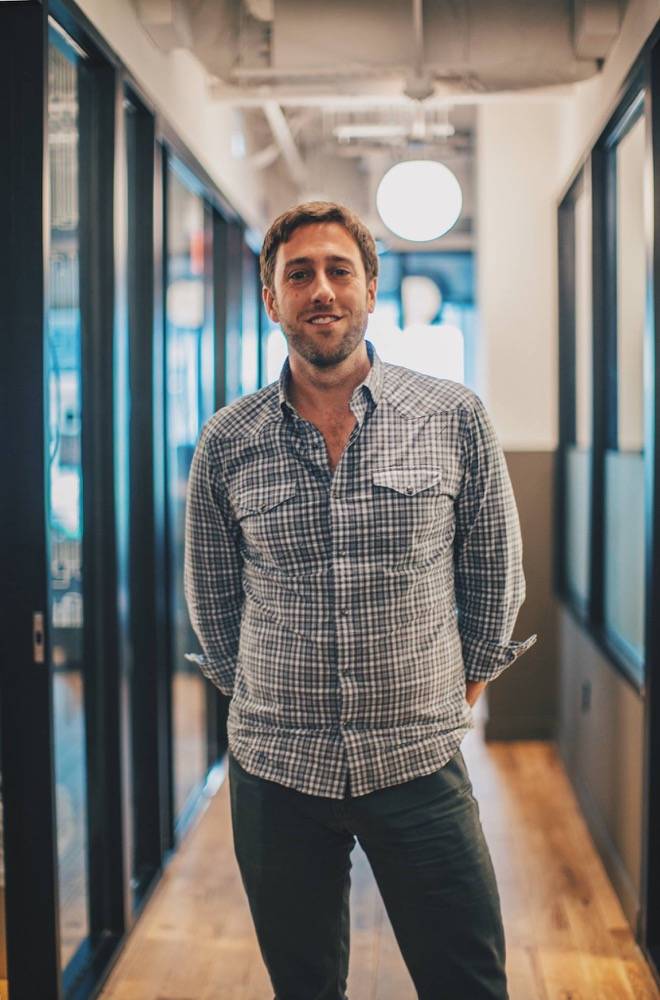
Smile Politely came after that, as Maier got looped in with Kessinger and Fein after they’d come up with this idea for the magazine. Maier comments about his initial link up with Kessinger, stating: “I got linked up with a bunch of designers [in the Art + Design program], one of which was Mason, so that’s how we got together. I was just kind of looking for creative projects outside of the work of Ninth Letter. I met up with Mason and Seth, I’m pretty sure we went to Farren’s and sat there and they laid the idea out, and said, ‘this is what we want to do, what do you think?’
“At this point, I had come off of Ninth Letter, which was a University project, so I was pretty hungry to get involved in something like this. We just started talking about this great idea, and it needed an editorial purpose behind it. From my perspective, what I really wanted to do was to figure out how we could build something that was sustainable, which had a level of excellence to it that we could all be proud of.”
Sustainability certainly is key, as I’m sitting here, writing about how the magazine turned 10 at the end of last year. This was a point that Kessinger mentioned as well as I spoke with him. These two, alongside Fein, crafted something that I think took on a life of it’s own even better than they could’ve initially envisioned.
“I started diving in and thinking — what is our actual purpose? What is the shape of this thing gonna be like? How can we set up editorial goals and editorial standards that can let us not only create a good issue of a magazine that we’re going to be proud of, but that can create a small army of people who are going to be excited to contribute to this, and that it’s gonna be feasable to contribute to it?”
Having a population of students and University members, for starters, helps create a creative cushion — we’ve had hundreds of writers over the years, ranging from contributors that just supply one piece, to others that contribute tons over the course of years and years. The type of contributor very much differs, and no two are the same.
Since Maier helped shape the editorial focus, not much has changed — engaged community members are still approaching us, wanting to contribute to what we’re doing. Perhaps the scope wasn’t as defined back at the beginning, but that just took time to sort through.
“The principle of being committed ot the local community was a principle that always drove us. We weren’t trying to be a national publication, but we wanted to produce work that could have national relevance, and tie into themes for someone that wasn’t in Champaign-Urbana might still find really interesting. We were committed to Champaign-Urbana and downstate Illinois from the get-go.”
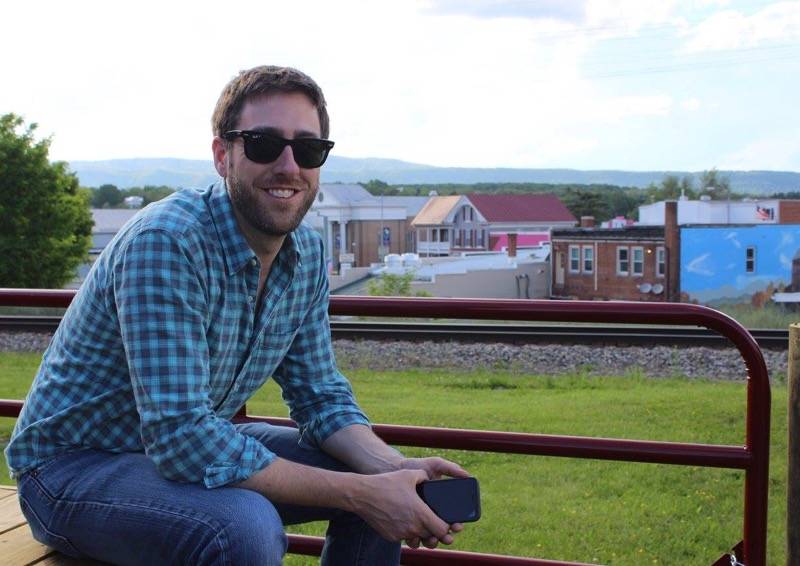
Bringing people together and collaborating on this community journalism project, one that has spread its wings a bit over the years, is still a main goal of Smile Politely. Maier’s goals were similar, as he felt that SP wanted to represent the community in which it existed.
“There was this posture of pride that was a big part of how we started it. The other thing is that we didn’t want it to be pretentious — we wanted it to be really good and we wanted the quality level to always be high. But we wanted it to be successful and represent the community. We were very commited to working on it, and saying this was a great place, and this is a place you should want to stay in, and remain in, and do things in.”
At this point in time, The Octopus was gone. CU Cityview, The Paper, and The Hub had all tried to succeed it, and folded, for one reason or another. The News-Gazette was around as always, and so was The Daily Illini and its weekly entertainment magazine Buzz (which still is, albeit online only) but there was a space for this type of publication.
“There seemed to be a void,” Maier mentions, “and there seemed to be a void in part because I feel like there needed to be local voices and local pride driving some sort of publication. And something that felt like it reflected the younger people in the community who really wanted to make an impact on it, or have an imprint.”
While they weren’t attempting to be overly-pretentious, tastemaking was a particularly intriguing component of talking about the community, Maier discusses:
“We actually had hopes and dreams for the community to become a better and cooler and more diverse and more vibrant place. We weren’t just reporting on it, but we were trying to edge it in another direction. We wanted to be a conversation starter.”
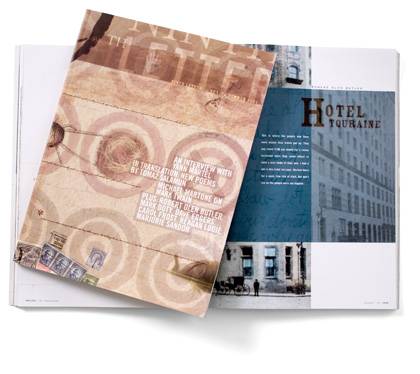
The first edition of Ninth Letter, Spring/Summer 2004
With everything that Maier has moved on to do out in Washington D.C., I thought about his flight path in the creative industry. There had to be a common line between all of these projects.
“I think that there’s something inherently creative about Smile Politely, or getting Ninth Letter off the ground, or any of these things I’m doing in D.C.,” he said, “To me, there’s a clear line between those things. They are all creative. They are all entrepreneurial. All of these things are all driven by a sense of commnity using media, art, and plenty of other things. In Smile Politely’s instance, in the digital landscape, it brings people together. Sometimes we forget that, or we are just saying we’re using a media platform. But really, we’re using different sets of tools to bring people together. I think all of those things are very different. Smile Politely from Ninth Letter to Little Salon. But all of those things are hopefully, in unique ways, tapping into unique communities to bring people together and give people a voice.”
All photos courtesy of Chris Maier.
This series is a part of Smile Politely’s 10 year anniversary series. Be on the lookout for more in the future, as well as a party for SP 10.








